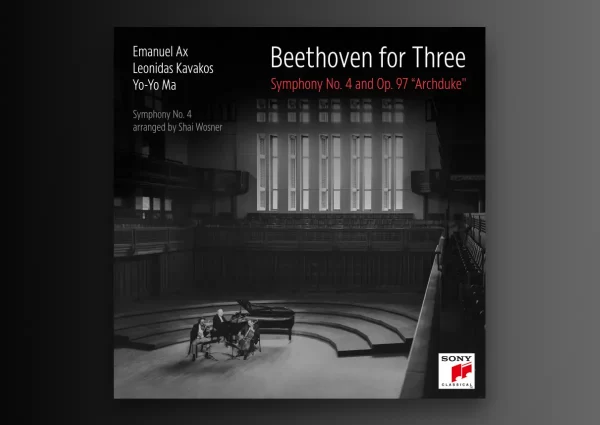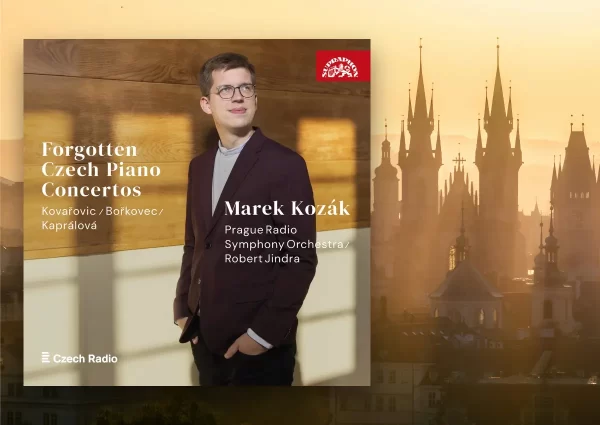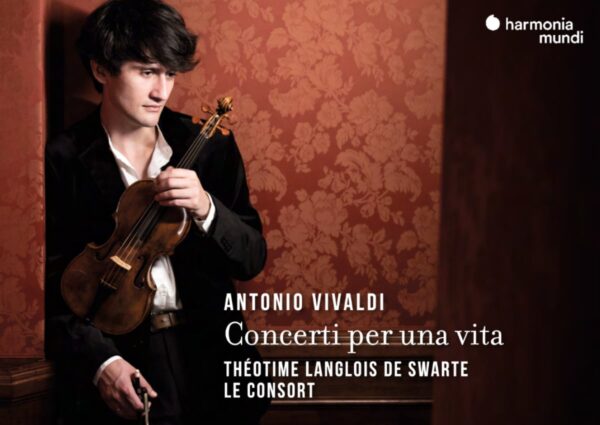In February 2020, I reviewed soprano Hanna-Elisabeth Müller’s refreshing collection of Schumann, Poulenc, and Zemlinsky songs with piano. Her new collaboration with Christoph Eschenbach and the WDR Symphony continues with the 19th-mid 20th century song, this time with Richard Strauss. One of the features is what Müller calls the heart of the album: his Four Last Songs.
Strauss wrote over 200 songs of which about a fifth were orchestrally arranged. Ständchen (track 1), written when he was 22, embodies the promise of youth. The soprano’s approach is one of enthusiasm and unfailing optimism. The buoyant, carefree spirit has touches of whimsy–sometimes a little too much, though, as the leaps feel somewhat forced and the high notes a bit sharp. The orchestra does a nice job with Felix Mottl’s arrangement. The cascading arpeggios of the piano version might remind us of a brook; here they’re taken over by the winds and harp who turn it into a delicate rustling while maintaining a clear, gossamer quality.
Winterweihe (1918) was dedicated to Strauss’ wife, Pauline. The text centers on a deep, undying bond and the music manifests this togetherness: hear how the orchestral and vocal lines move in parallel fashion. The performers have a faultless synchronicity which in turn brings out a comforting warmth. But where the parts do diverge, Müller creates convincing moments of expressive contrast.
Malven, Strauss’ final lied, has a relatively new 2014 orchestration by Wolfgang Rihm. Written more than 6 decades after Ständchen, the melodies are still undoubtedly charming but now have hints of weariness and even darkness that lingers in the chromatic passages and through the final, elongated bass note. Müller’s silvery tone floats above the accompaniment beautifully and Eschenbach’s more measured tempo creates the image of a contemplative narrator. Another fine recent recording by Lise Davidsen/Esa-Pekka Salonen (reviewed here) cultivates a little more forward direction in the lines for a wistful, if not at times urgent rendition.
Related Posts
- Review: Strauss – Ein Heldenleben, Burleske – Chamayou, Pappano
- Review: “Clair-Obscur” – Sandrine Piau Sings Strauss, Berg and Zemlinsky
- Review: Riccardo Chailly Conducts Richard Strauss
The Four Last Songs are amongst the finest works of the composer and the soprano repertoire. The texts by Hesse and Eichendorff address death in a striking yet meditative light. And given the timing of the composition (one year before his own death), they could very well reflect Strauss’ personal reflections. Musically, there are both rapturous and calm aspects: they work in flux to shed a vibrant and profound light on the acceptance of a conclusion to life’s weary journey.
The tonal language of Frühling (track 8) is kaleidoscopic in its complexity. Eschenbach and the orchestra make a nice transition from the whispery, undulating opening figurations to the lush high point (1’06”), but not without a perceptible sense of guardedness–maybe so as not to overpower the soloist. Müller skillfully adjusts her tone qualities to match the constantly evolving harmonic colors; however, as I remarked in Ständchen, I found a bit too much angularity in phrasing (i.e. at 0’32”). If one turns to the classic Schwartzkopf/Szell account (1966), we hear more nuancing in the way the soloist builds the lines. Yet for all the grand textures, the delivery has a personal quality that draws the listener in.
Consistent with some other songs on the album, Im Abendrot (track 11) is on the subtler side. The orchestral introduction features some lovely and pristine intervallic dialogue from the horns. Müller’s control throughout of breath and color, too, are laudable. But given the enormity of these songs and the finality of this particular one, something feels lacking: could it be the expansiveness that Kurt Masur and the Gewandhaus Orchester evoke so vividly in their 1982 recording with Jessye Norman? Or the gripping and multifaceted account that Norman gives? Her voice carries a satisfying richness which is powerful yet also nostalgic and even philosophical.
Kerstin Schüsser-Bach’s good liner notes give individual descriptions to each of the orchestral songs. The commentary on the Four Last Songs was especially interesting. I liked how there was a balanced combination between historical, musical, and compositional insight. (Eagle-eyed readers may notice, however, that the booklet contains a typo on a date reference to Malven). As for the sound engineering, it proves inconsistent with some balance issues in the Four Last Songs. I would have liked to hear more of the soloist on multiple occasions.
While this recording will not replace its well-established predecessors, it is nonetheless a solid effort considering the musical and interpretative precedents of these challenging works.

Strauss – Sinnbild – Orchestral Songs
Hanna-Elisabeth Müller – Soprano
WDR Symphony Orchestra
Christoph Eschenbach – Conductor
Pentatone, CD PTC5186806
Recommended Comparisons
Read more classical music reviews or visit The Classic Review Amazon store
Follow Us and Comment:
Get our periodic classical music newsletter with our recent reviews, news and beginners guides.
We respect your privacy.









